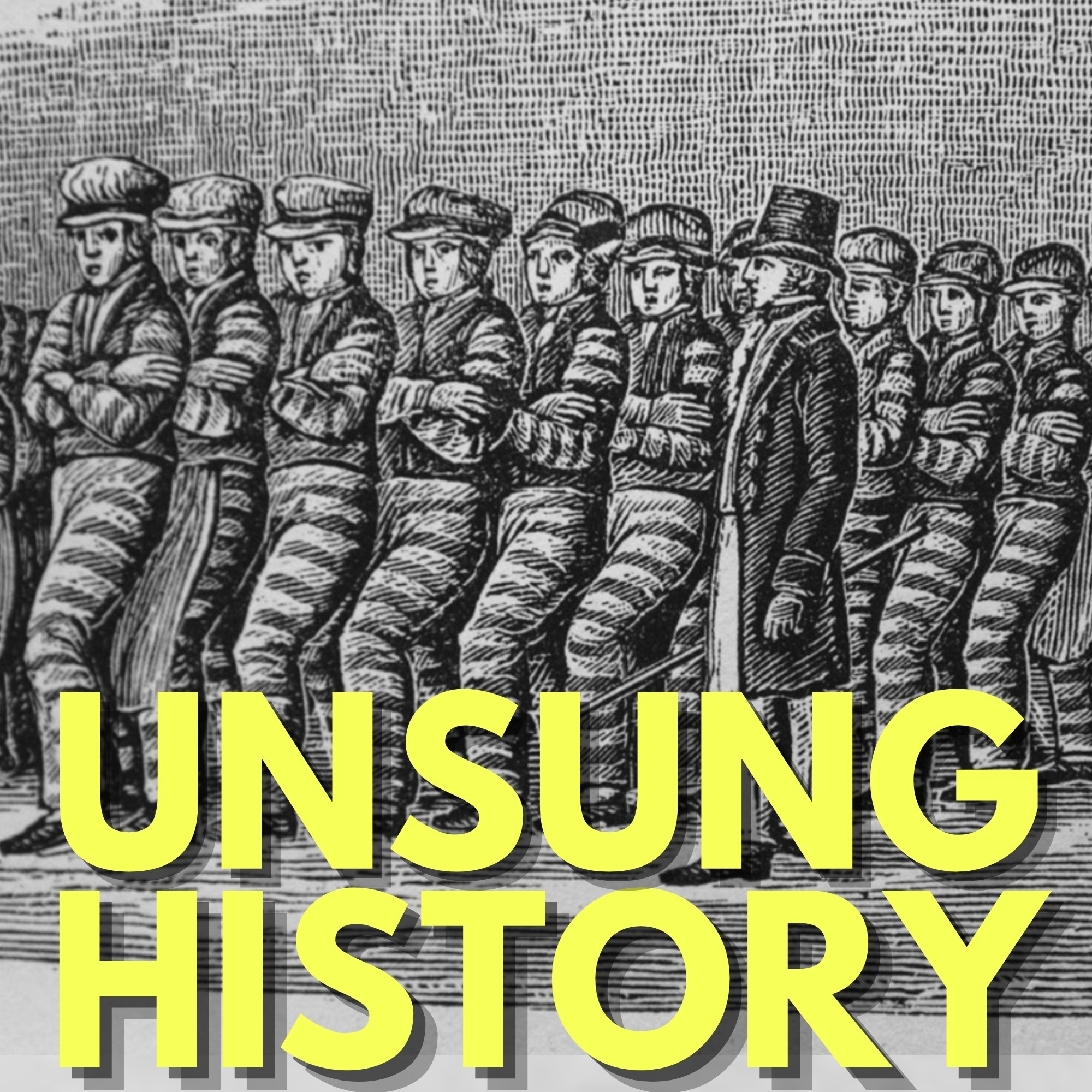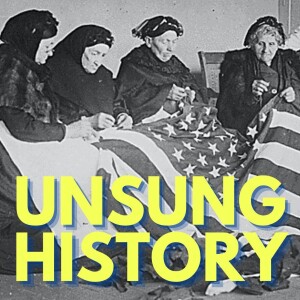
The Auburn Prison System & the Case of William Freeman
 2024-06-24
2024-06-24
In 1817, the second state prison in New York opened in Auburn, situated on a fast-flowing river so waterpower could be used to run machinery in the factories that would be housed in the prison. In a new practice of incarceration that would come to be known as the Auburn System, the prisoners labored in silence during the day for the profit of the prison, stayed in solitary confinement every night, and lived under the constant threat of brutal violence from the guards. One prisoner, a man named William Freeman, who was locked up for a crime he swore he didn’t commit, demanded that he be compensated for his labor when he was released, and when no one would listen, he sought payback instead, committing a horrific crime.
Joining me in this episode is historian Dr. Robin Bernstein, the Dillon Professor of American History and Professor of African and African American Studies and of Studies of Women, Gender, and Sexuality at Harvard University and author of Freeman's Challenge: The Murder That Shook America's Original Prison for Profit.
Our theme song is Frogs Legs Rag, composed by James Scott and performed by Kevin MacLeod, licensed under Creative Commons. The mid-episode music is “Bleeding hearted blues,” song and lyrics by Lovie Austin, with vocals by Bessie Smith and piano by Fletcher Henderson, recorded in New York City on June 14, 1923; the recording is in the public domain and is available via the Library of Congress National Jukebox. The episode image is an illustration of prisoners at Auburn wearing striped outfits and moving in lockstep from Historical Collections of the State of New York: Containing a General, by John Warner Barber, Henry Howe, published in 1845 and available via Google Books.
Additional Sources:
- “Geology of the Finger Lakes | Journeys Through the Finger Lakes [video],” PBS.
- “The Deserted Village,” by Oliver Goldsmith, 1770, via Poetry Foundation.
- “Both Sides of the Wall: Auburn and Its Prison,” The Cayuga Museum of History and Art.
- “19th Century Prison Reform Collection,” by Katie Thorsteinson, Cornell University Library.
- “People v. William Freeman, 1846,” Historical Society of the New York Courts.
- “People v. William Freeman (1847),” Cornell Law School
- “The trial of William Freeman for the murder of John G. Van Nest,” reported by Benjamin F. Hall, Derby, Miller & Co., 1848.
- “NY's New License Plates Will Still Be Made By Prisoners Earning 65 Cents An Hour,” by Christopher Robbins, Gothamist, August 23, 2019.
Advertising Inquiries: https://redcircle.com/brands
More Episodes
 2024-10-21
2024-10-21
 2024-10-14
2024-10-14
 2024-09-23
2024-09-23
 2024-09-09
2024-09-09
 2024-09-02
2024-09-02
 2024-08-26
2024-08-26
 2024-08-19
2024-08-19
 2024-08-05
2024-08-05
 2024-07-29
2024-07-29
 2024-07-22
2024-07-22
 2024-06-17
2024-06-17
Create your
podcast in
minutes
- Full-featured podcast site
- Unlimited storage and bandwidth
- Comprehensive podcast stats
- Distribute to Apple Podcasts, Spotify, and more
- Make money with your podcast
It is Free
- Privacy Policy
- Cookie Policy
- Terms of Use
- Consent Preferences
- Copyright © 2015-2024 Podbean.com





